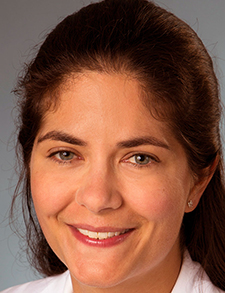
Dr. Gordon
Clinical question: How does postsurgical delirium impact cognitive performance over a six-year follow-up period?
Background: Delirium is a challenging syndrome that is frequently encountered in hospitalized older patients and is associated with bad outcomes including increased length of stay (LOS) and higher mortality. There is a growing understanding that patients with delirium are at a higher risk of cognitive impairment and dementia. There is a need to better characterize the relationship temporally between delirium and cognitive decline beyond the short term.
Study design: Prospective cohort study
Setting: Beth Israel Deaconess Medical Center and Brigham and Women’s Hospital, Boston
Synopsis: 560 patients ≥70 years of age and undergoing major elective surgery requiring an anticipated LOS of ≥3 days were included in the SAGES cohort; exclusion criteria included pre-existing dementia or delirium, as well as recent hospitalization. Patients underwent delirium assessment during hospitalization, and cognitive performance tests both preoperatively and prospectively for six years thereafter. Results were compared to a nonsurgical group of 119 patients. Ultimately, 24% of the SAGES cohort experienced delirium, and these patients were significantly more likely to die over the six-year follow-up period (hazard ratio 1.43). Patients with delirium were found to have a 40% faster rate of cognitive decline as compared to patients without delirium. This study further supports that postoperative delirium is an important marker for the risk of cognitive decline, however, it is currently unclear whether delirium causes the cognitive decline or whether it merely signals people already on the trajectory of decline. For hospitalists, it further strengthens the need to focus on delirium prevention. Limitations include that only 5% of patients were Black or African American.
Bottom line: Postoperative delirium is a risk factor for cognitive decline, which is still evident at six years of follow-up.
Citation: Kunicki ZJ, et al. Six-year cognitive trajectory in older adults following major surgery and delirium. JAMA Intern Med. 2023;183(5):442-50.
Dr. Gordon is the associate program director of Maine Medical Center’s internal medicine residency program, a hospital medicine attending at Maine Medical Center, Portland, Maine, and an assistant professor at Tufts University School of Medicine, Boston.